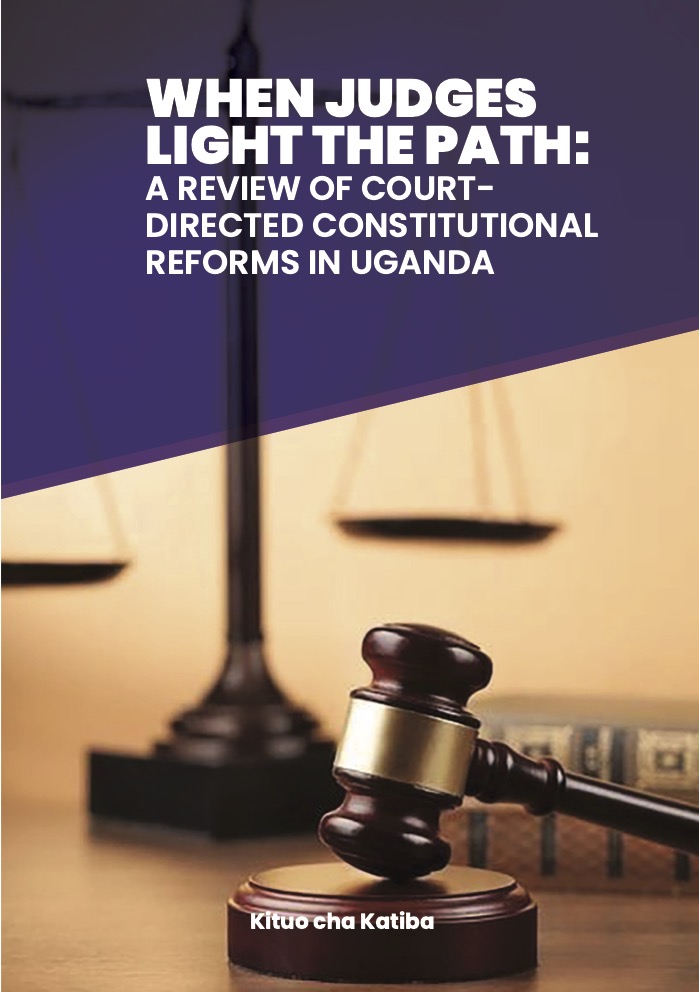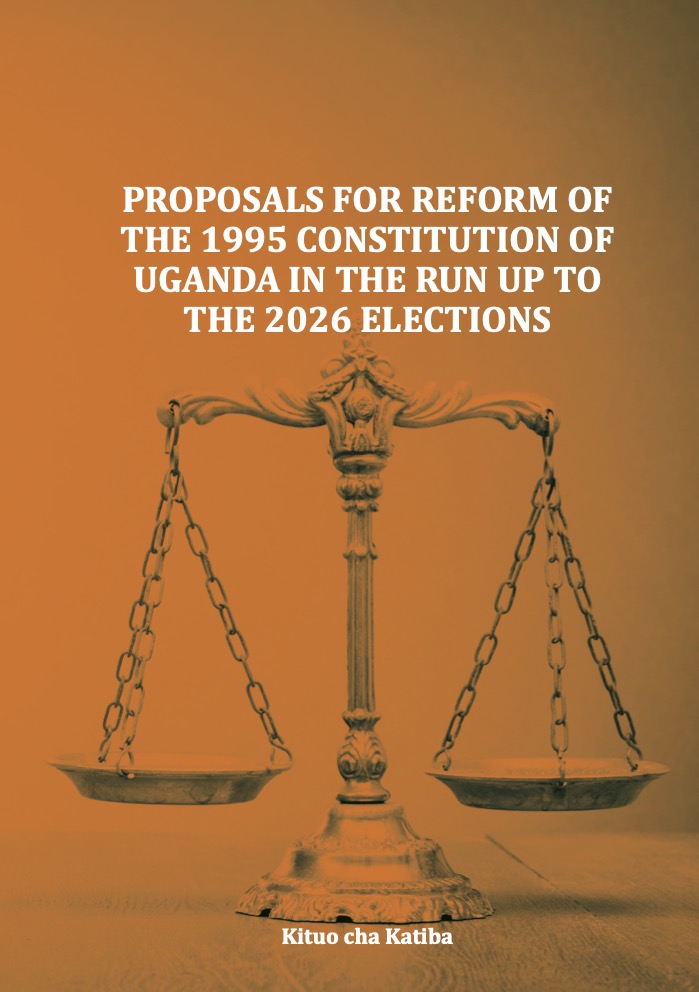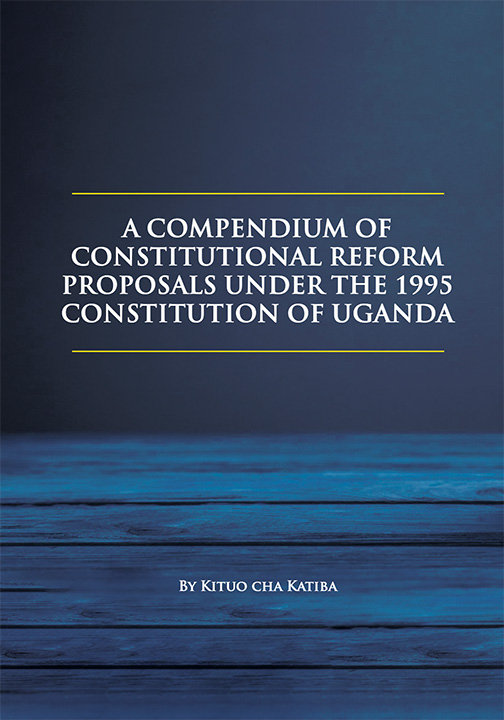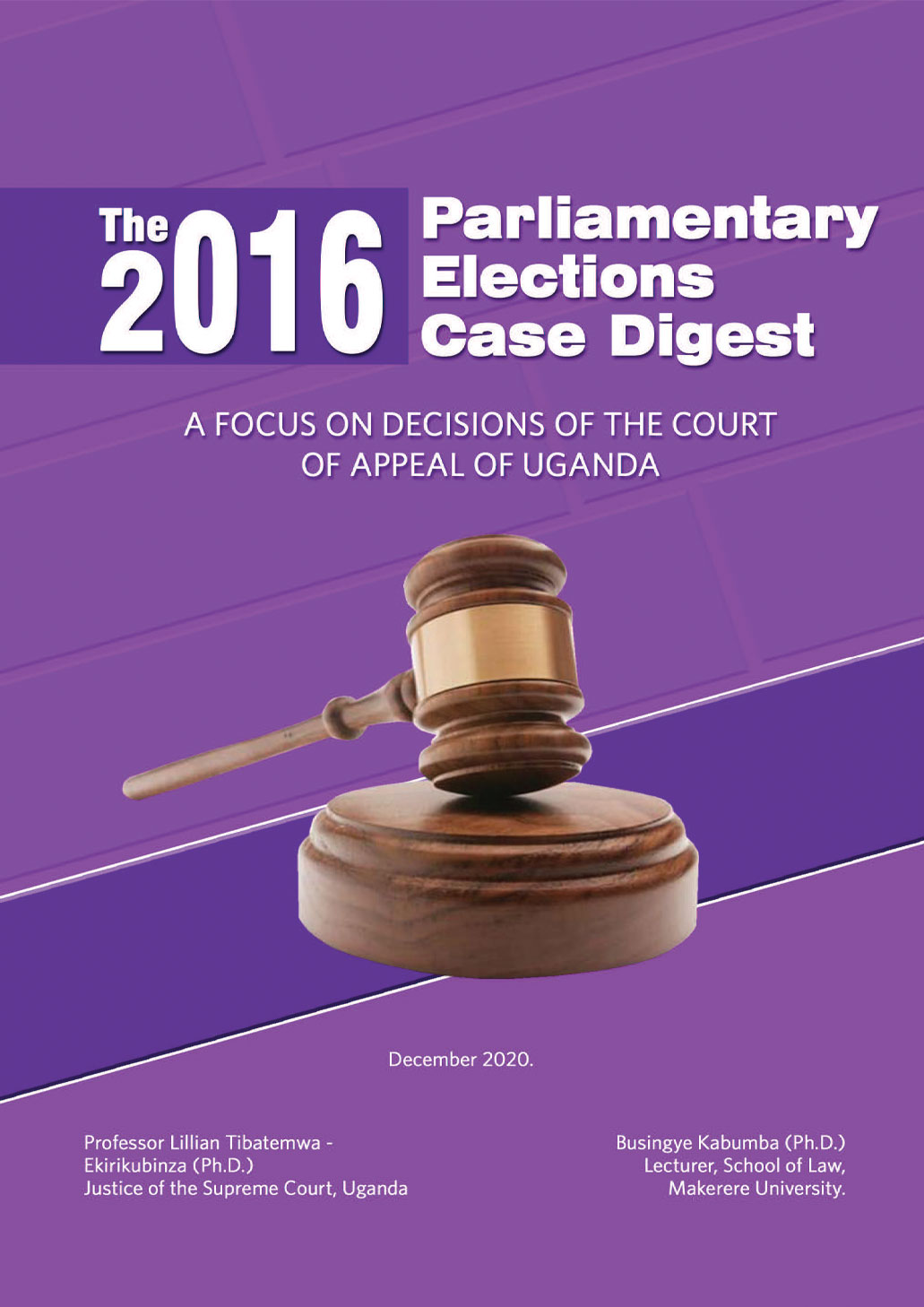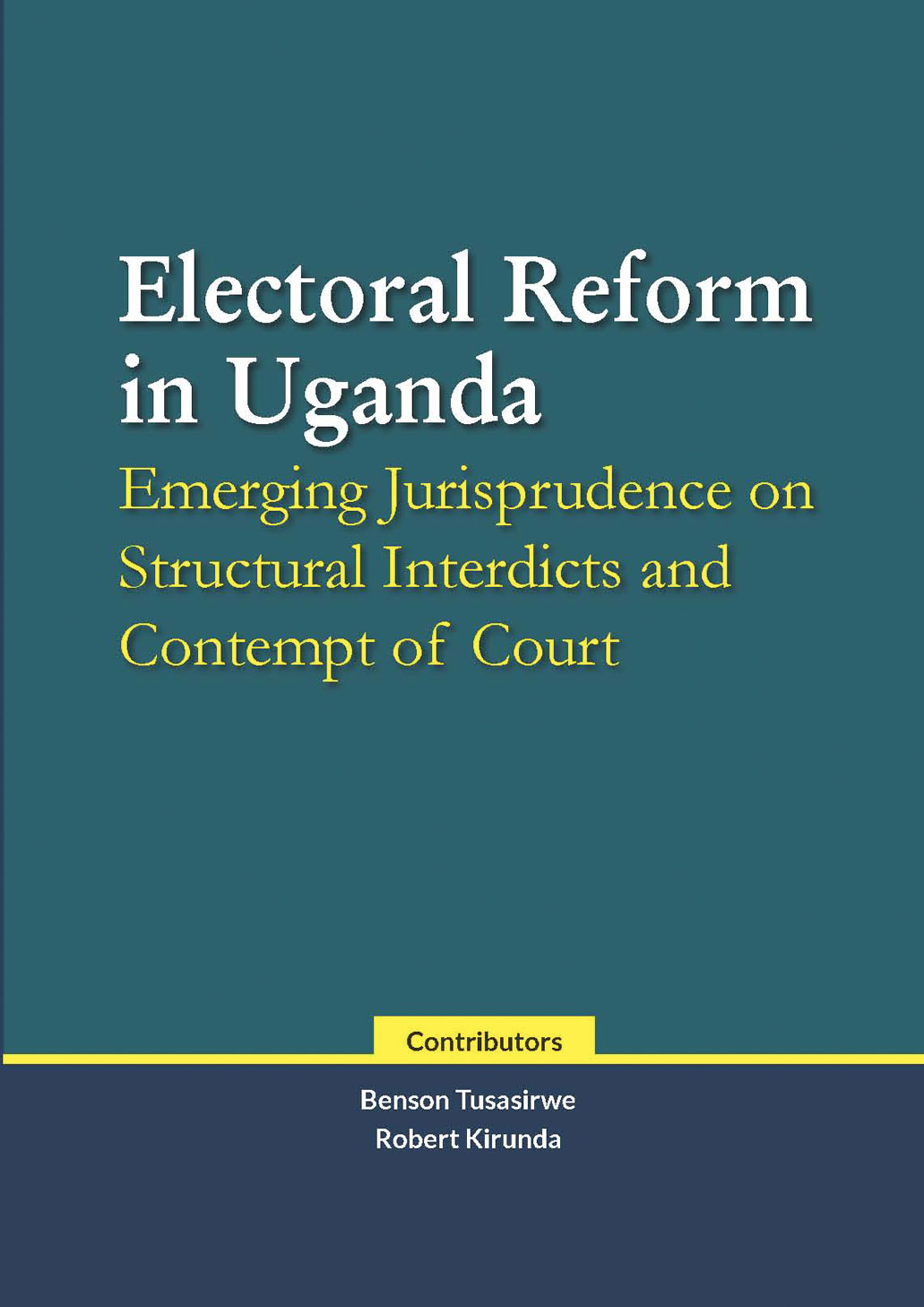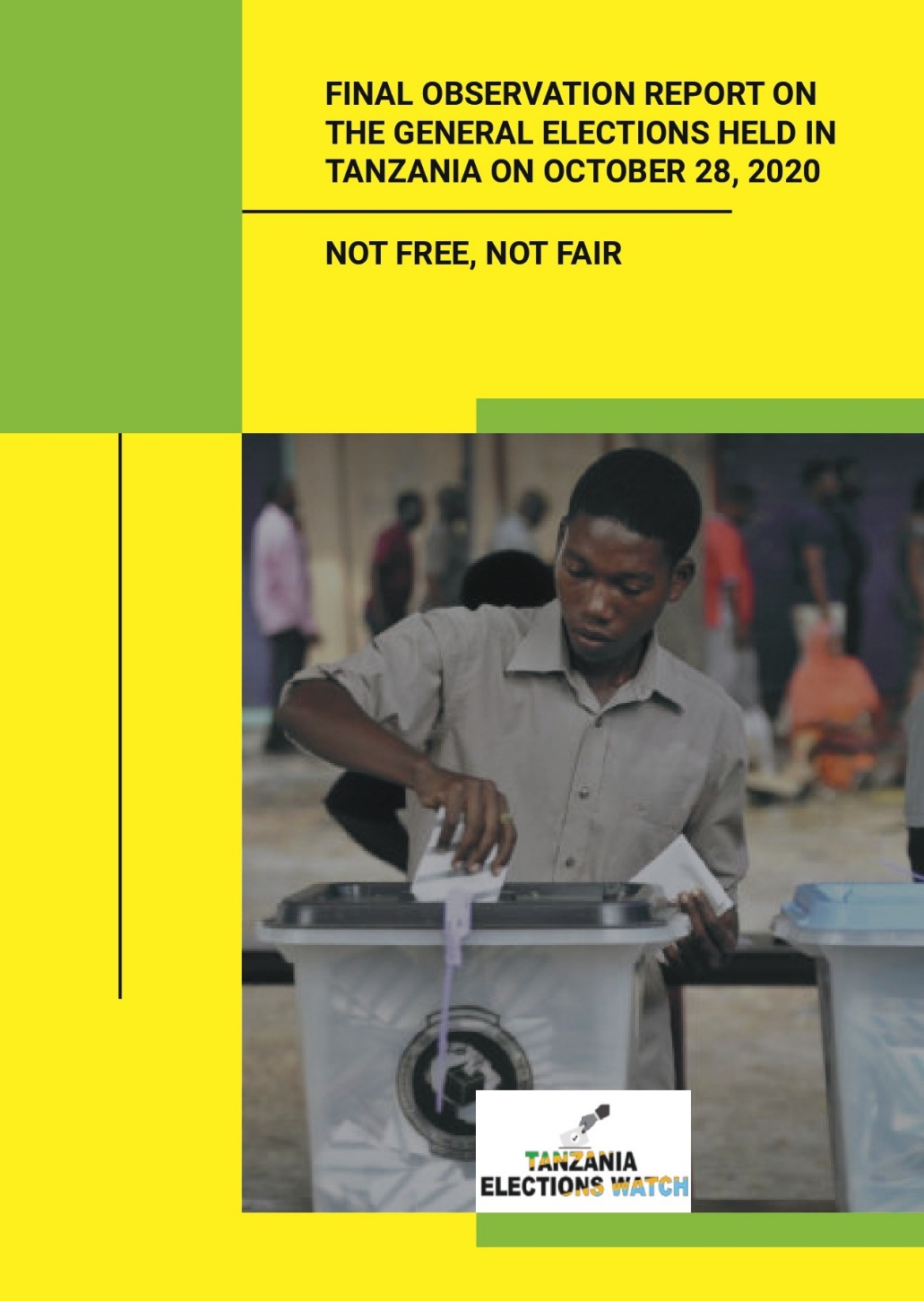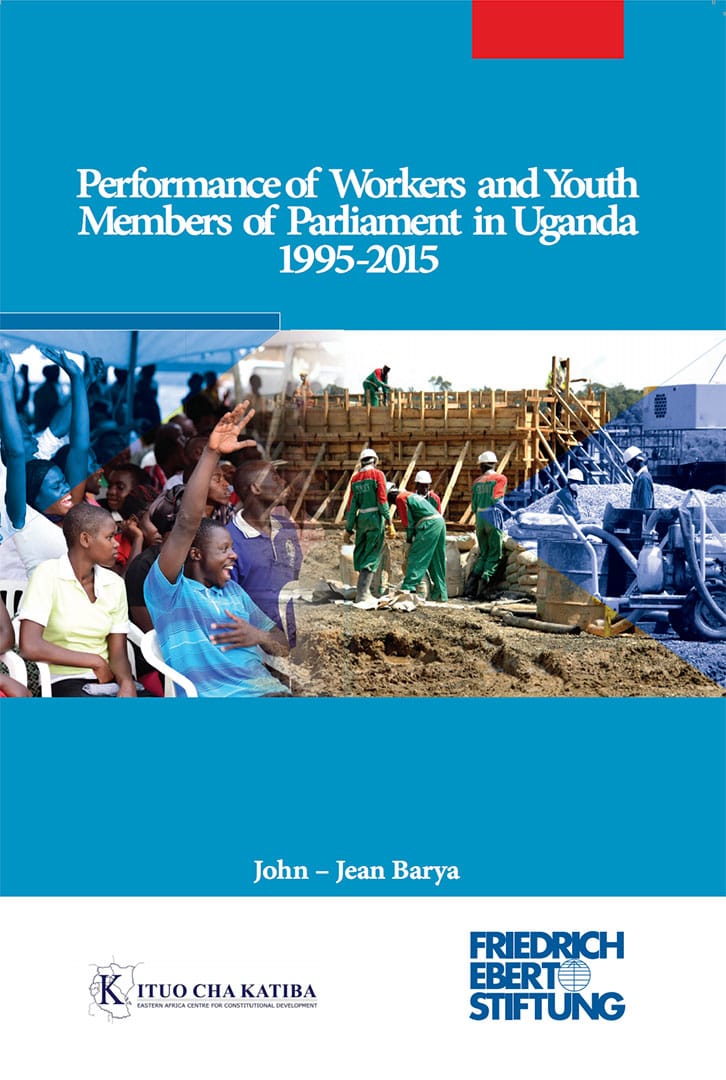| Attachment | Size |
|---|---|
| Constitutional-Reforms-Paper-26-04-2024.pdf (1.03 MB) | 1.03 MB |


Proposals for Reform of the 1995 Constitution Of Uganda in The Run Up to the 2026 Elections
Background - It is 28 years since Uganda promulgated its current constitution. Since then, the country has undergone many socio-political changes and experienced pressures and developments emanating from within and outside its borders. These have impacted the constitution in both positive and negative ways. Further, practices of the major stakeholders charged with the implementation and enforcement of the Constitution have veered off course and as a result eroded the checks and balances to such an extent that it is imperative to embark on a search for a new consensus. The challenges faced, especially after the year 2001, justify examination of the applicability and relevance of most provisions of the constitution. The national consensus forged by the 1995 Constitution, if indeed there was one, has diminished. The investigation in this work will go a long way in determining the extent to which the Constitution still reflects the aspirations of Ugandans.

A Compendium of Constitutional Reform Proposals under the 1995 Constitution of Uganda
| Attachment | Size |
|---|---|
| A-COMPENDIUM-OF-CONSTITUTIONAL-REFORM-PROPOSALS-UNDER-THE-1995-CONSTITUTION-OF-UGANDA.pdf (1.65 MB) | 1.65 MB |

The 2016 Parliamentary Election Case Digest. A focus on Decisions of the Court of Appeal of Uganda
The 2016 Parliamentary Election Case Digest. A focus on Decisions of the Court of Appeal of Uganda
By Lillian Tibatemwa-Ekirikubinza and Busingye Kabumba
| Attachment | Size |
|---|---|
| KituoCha-Katiba-Report-Final-case-Digest.pdf (4.39 MB) | 4.39 MB |

Electoral Reform in Uganda. Emerging Jurisprudence on Structural Interdicts and Contempt of Court
Electoral Reform in Uganda. Emerging Jurisprudence on Structural Interdicts and Contempt of Court.
The 2019 Supreme Court Decision of Prof. Frederick E. Ssempebwa & Ors v. Attorney General
Contributors
Benson Tusasirwe
Robert Kirunda
| Attachment | Size |
|---|---|
| Electoral-Reform-in-Uganda.pdf (1.61 MB) | 1.61 MB |

Enhancing Electoral Justice in Uganda's Parliamentary Elections: The search for Dependable Precedent
Enhancing Electoral Justice in Uganda’s Parliamentary Elections: The Search for Dependable Precedent
- Lillian Tibatemwa-Ekirikubinza
- Busingye Kabumba
| Attachment | Size |
|---|---|
| KituochaKatiba-Enhance-electoral-Justice.pdf (801.55 KB) | 801.55 KB |

Final Observation Report On The General Elections Held in Tanzania On October 28, 2020
Tanzania identifies itself as a democracy. Its tradition of competitive political contest and inclusion, built since the restoration of multipartyism 25 years ago, has recently suffered severe setbacks because of shrinking civic space and low tolerance for political plurality.
Going into the October 28, 2020 General Election, Tanzania had effectively shut out independent election observation and monitoring by denying accreditation to civil society organisations, deregistering non-governmental organisations, and freezing the bank accounts of large civil society coalitions. The exclusion of observers from the electoral process foreshadowed the country’s approaching democratic decline. It is against this background that civil society organisations from the eastern Africa region established the Tanzania Elections Watch (TEW) initiative.
The initiative, organised and coordinated by Kituo cha Katiba: Eastern Africa Centre for Constitutional Development (KcK) and the Kenya Human Rights Commission (KHRC), sought to plug the gaps evident in the exclusion of domestic observers from the electoral process and the inability of international observers to access the country due to the Covid-19 pandemic, as well as provide oversight for the elections.
| Attachment | Size |
|---|---|
| Tanzania Elections Watch Final Report Pdf(1) (1).pdf (2.87 MB) | 2.87 MB |

Peace and Unity in the Isles - Prospects of a Government of National Unity in Zanzibar
About this publication
Kituo cha Katiba: The Eastern Africa Centre for Constitutional Development (KcK) sent a fact finding mission to Zanzibar out of concern about the post-2015/16 election political developments in the country. The major goal of the mission was to provide an avenue for Zanzibaris to express their views and exchange ideas about their country’s constitutional future. The specific objectives were to: Capture, document and assess the voices of Zanzibar is on outstanding constitutional issues following the 2015 elections; the implications for the future; and recommendations for constitutional reform and the way forward, Provide a neutral forum for popular assessment of the Government of National Unity (GNU) – its achievements and challenges in the light of Zanzibar’s constitutional and political development, and Identify key strategies to move Zanzibar’s constitutional agenda forward.
Publication Category
Fact Finding Missions
Publication Price
$15
| Attachment | Size |
|---|---|
| (English Kiswahili) Peace and Unity in the Isles_Final.pdf (1.12 MB) | 1.12 MB |

A People’s Dialogue Political Settlements in Uganda and the Quest for a National Conference
A People’s Dialogue: Political Settlements in Uganda & the Quest for a National Conference is the result of a study on political settlements in Uganda and the future of governance. The framing of these settlements was frequently marked by manipulation and fraud, and their endorsement done under duress. However, after Uganda attained political independence, itself the culmination of a settlement at Lancaster House, a number of settlements were negotiated and sealed, involving a variety of parties, to respond to specific political challenges and emergencies.
Post-independence Uganda has never experienced a peaceful transfer of power, with serious social and political repercussions. This state of affairs created the need to analyse, in detail, various settlements, starting in 1890 and ending in 2007.
Since the various settlements seem not to have led to sustainable democratic governance in Uganda, it is felt that a meaningful political settlement involving a national dialogue remains the only meaningful option. This study recommends a settlement arrived at with the involvement of citizen groups and using the bottom-up approach.
The study is enriched with an appendix comprising all the settlements that it draws upon for those readers who might wish to delve into them. Also appended to it is an important document on the Juba Peace Process from Uganda Women’s Coalition for Peace.

Performance of Workers and Youth Members of Parliament in Uganda (1995-2015)
- Publication Language - English
Copies are sold at KcK offices (Plot 7 Estate Link Road, Bukoto, off Lugogo By-Pass.). For retail and bulk purchases, please get in-touch with us.
